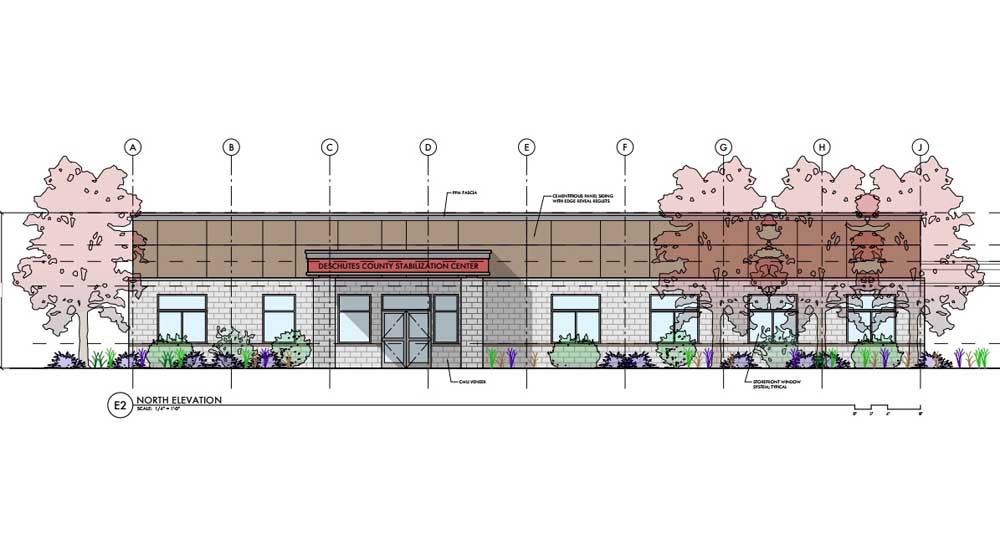Deschutes County appears to be moving forward with mental health crisis center
Published 12:00 am Thursday, May 23, 2019

- An architectural drawing of the proposed Deschutes County stabilization center. (Submitted photo)
It appears Deschutes County will move forward with a mental health crisis center.
The center, dubbed a stabilization center by officials, would intercept people with serious mental health issues who would otherwise end up in the criminal justice system.
Earlier this year, Deschutes County commissioners said they wanted to visit other mental health crisis centers in the state before making a decision to start building one in Bend. After touring more facilities and suggesting multiple changes to a proposed layout of the center, the commission decided to move forward with the project during a work session Wednesday.
With a nod from the commission, $1 million in grant money that county health employees feared could have been in jeopardy with a stall in the timeline is no longer a concern, Deschutes County Crisis Program Manager Holly Harris said.
“It feels very, very good,” Harris said.
The stabilization center would let law enforcement officers drop off those individuals with trained mental health professionals and then go back to their jobs.
The goal would be to operate around the clock and help people recover from mental health breaks through 23-hour respite periods at the stabilization center.
The project has been a priority for local law enforcement and the county’s public health department.
But throughout Wednesday’s work session, Commissioner Patti Adair and chairman Phil Henderson expressed reservations about aspects of the project, mostly concerning the location, certain aspects of the layout, the longevity of the center and project costs.
The health department is estimating the project will cost about $995,000.
Henderson questioned whether it would make sense to invest money in remodeling a section of the county’s public safety building, where the stabilization center would go, when the health department has already mentioned the possibility of moving to a different building as it expands in a few years.
“Does it make sense to spend a million dollars and then move in three years?” he said. “It shouldn’t be a stopgap.”
George Conway, the county’s health services director, said the health department intends to operate in the long term but would use the first couple of years of operation as a way to get data on how often the center is used, which would guide any future expansion.
“I don’t think anybody has in mind that this would be used for two years,” Conway said. “I think the idea is in two years we’ll have a better empirical understanding … of the scale that is necessary. If it turns out we are using it fully and anticipate further growth, we’ll have to start planning.”
Adair and Henderson also suggested several design changes to the project based on tours of other facilities, including fewer bathrooms, larger intake rooms that can handle families and more doors for some of the rooms — a practice that is common in centers that handle trauma.
“We’re trying to be conscientious,” Henderson said.
Commissioner Tony DeBone, who has been in favor of the center, supported the commission moving forward but questioned why the commission has not been moving faster.
“I’m surprised this has been scrutinized so much,” DeBone said.
Project managers will come to the next meeting in two weeks to get official approval of the design and construction documents.
— Reporter: 541-633-2160, bvisser@bendbulletin.com






